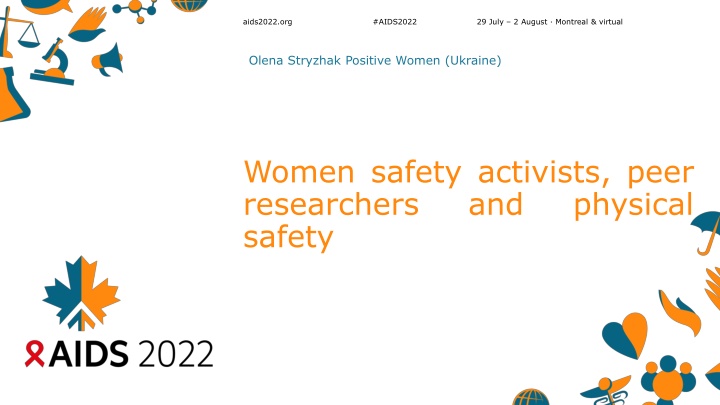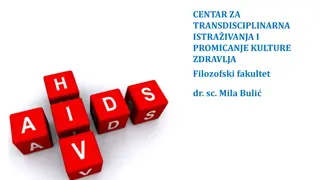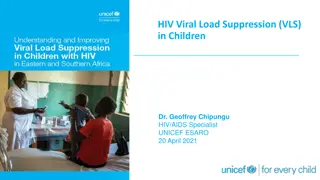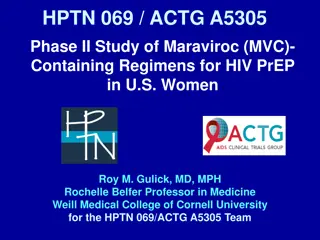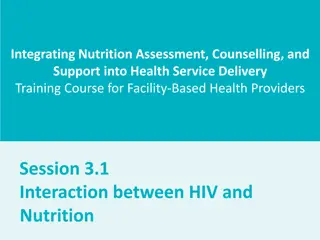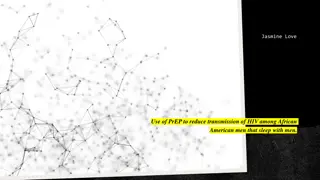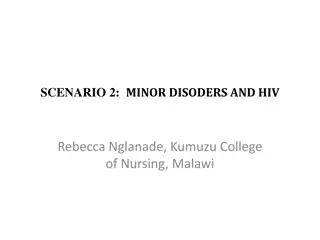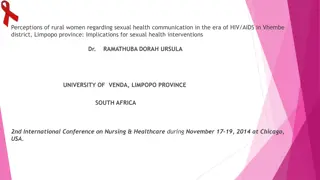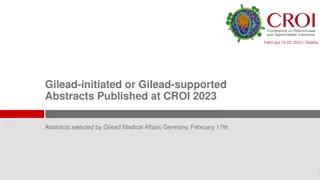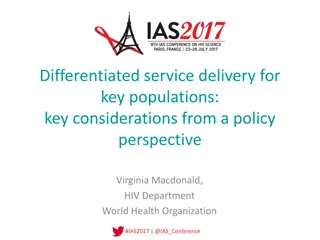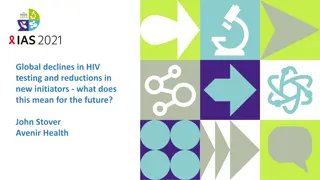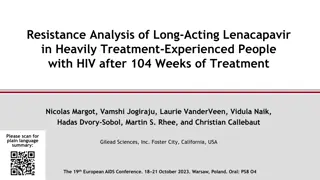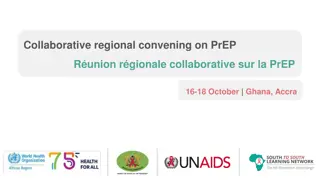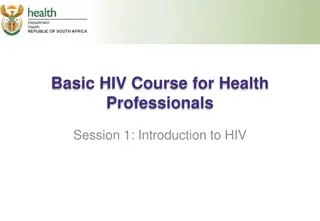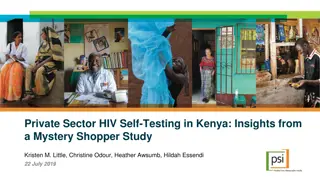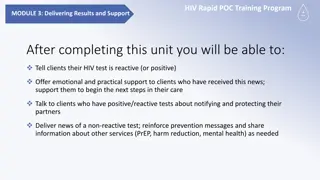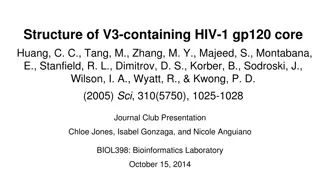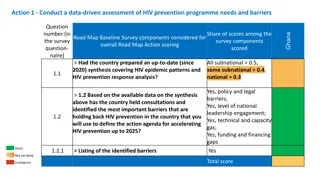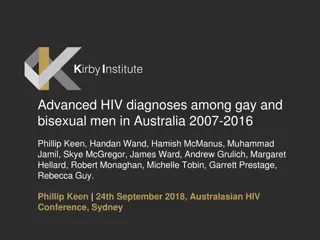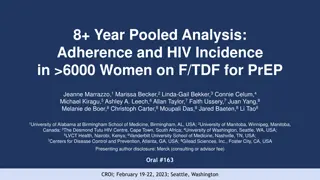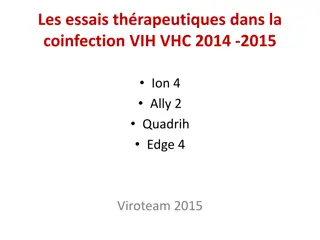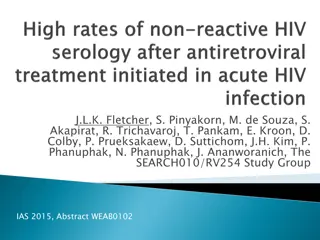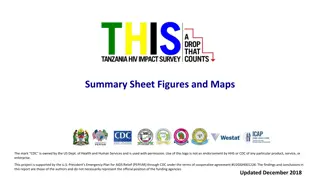Empowering Women Against HIV Criminalization: Study Findings and Protection Measures
Explore the pivotal study on HIV criminalization in the EECA region, led by women living with HIV who delved deep into local legislation and documented cases. The research prioritized safety, confidentiality, and participant protection, unveiling the gendered impact of HIV criminalization. From gender inequality to sensitive inquiries, the study emphasized safeguarding participants, ensuring informed consent, and offering support avenues if needed.
Download Presentation

Please find below an Image/Link to download the presentation.
The content on the website is provided AS IS for your information and personal use only. It may not be sold, licensed, or shared on other websites without obtaining consent from the author.If you encounter any issues during the download, it is possible that the publisher has removed the file from their server.
You are allowed to download the files provided on this website for personal or commercial use, subject to the condition that they are used lawfully. All files are the property of their respective owners.
The content on the website is provided AS IS for your information and personal use only. It may not be sold, licensed, or shared on other websites without obtaining consent from the author.
E N D
Presentation Transcript
aids2022.org #AIDS2022 29 July 2 August Montreal & virtual Olena Stryzhak Positive Women (Ukraine) Women safety activists, peer researchers and safety physical
HIV Criminalization Scan in the EECA region The following principles: Inclusion and Leadership. The study was led by women living with HIV methodology that yielded beyond identifying Representatives of the community of HIV-positive women acted as national coordinators and researched local legislation, documented cases of criminalization, conducted media monitoring and built the foundations of human rights organizations research methodology was based on the and had an that impressive went base. results the far evidence
Safety. The research team prioritized the protection of community informants, since in some countries, even studying the topic of criminalization can lead to State prosecution. Therefore, in the final report, the names of some informants and the names of their organizations are withheld Gendered optics. Understanding gender inequality and gender- based violence led us to conclude that women are significantly more affected by HIV criminalization 29 July 2 August Montreal & virtual aids2022.org #AIDS2022
Protecting participants from risks Sensitive questions, such as those relating to violence or rights abuse experiences, may make Participants will be informed questions that are uncomfortable for them, and no responses will be shared with other participants. Conducting the study and FGDs by representatives of the community of HIV-positive women will minimise possible psychological discomfort and provide a comfortable atmosphere for communication. The study will be conducted face-to-face only in the presence of the interviewer and the respondent in a convenient place for the latter. During the FGD, there will be no outsiders in the room, and the venue will be chosen by the study team in agreement with potential participants participants that they uncomfortable. may not answer 29 July 2 August Montreal & virtual aids2022.org #AIDS2022
The informed consent will contain the name and contact information of the organisations that are involved in the study and individual professionals. Participants will be informed that they can contact someone on the list if they have questions or comments about the study, or if they feel that their rights as participants in the study have been violated or they have been harmed by participation 29 July 2 August Montreal & virtual aids2022.org #AIDS2022
